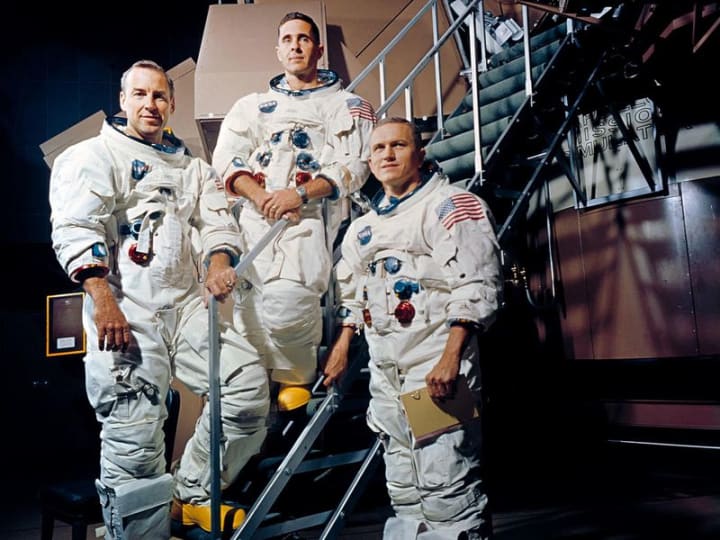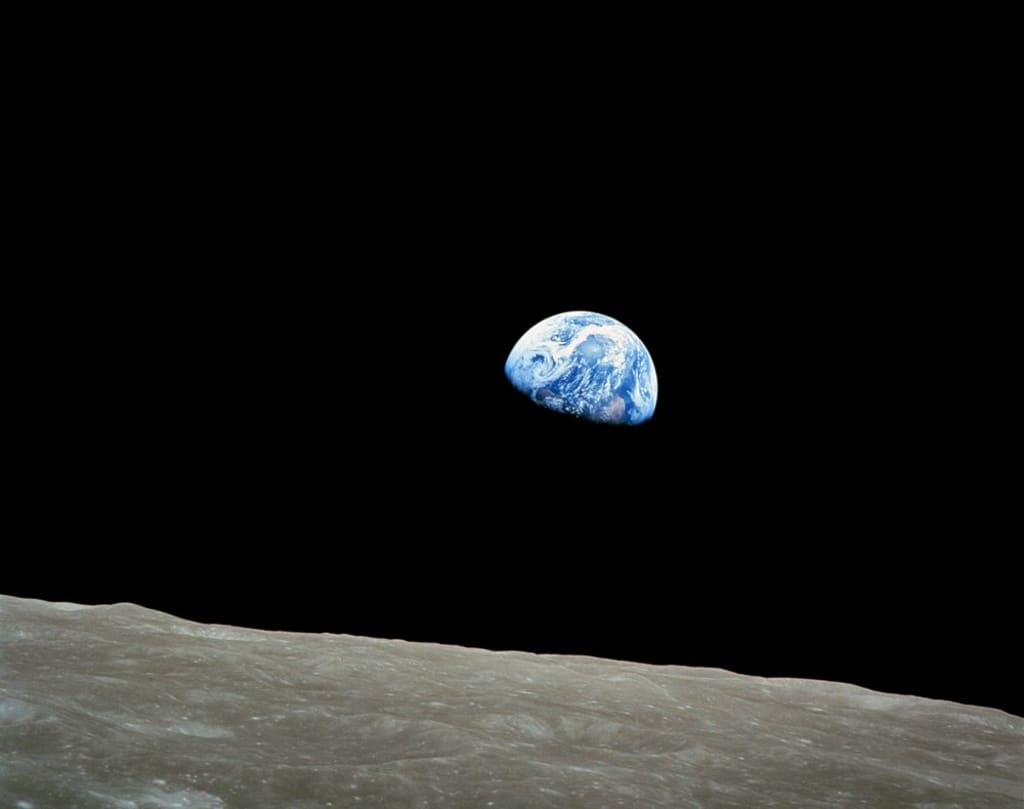Apollo 8 was a specifically memorable journey. It was the first time a spacecraft had orbited the moon and more extraordinary, it was the first time we were provided with a glimpse of our very own planet.
Dates: Dec. 21, 1968 – Dec. 27, 1968
The second manned spaceflight mission in the United States Apollo space program, Apollo 8, was launched on December 21, 1968. It became the first manned spacecraft to leave low Earth orbit, reach the Earth’s moon, orbit it and return safely to Earth.
Apollo 8 was a specifically memorable journey. It was the first time a spacecraft had orbited the moon and more extraordinary, it was the first time we were provided with a glimpse of our very own planet. A photo that was taken by astronaut Bill Anders’, titled “Earthrise,” shows the Earth peeking out from beyond the Moon’s surface against the dark eternity of space.
Not only is it famous for the first time the world would get to see its very own planet, but it’s also where the crew of Commander Frank Borman, Command Module Pilot Jim Lovell and Lunar Module Pilot Bill Anders, quoted the book of Genesis as they entered lunar orbit on Christmas Eve. The crew did a live television broadcast from lunar orbit where they showed a video of the Earth and the Moon from their point of view. “The vast loneliness is awe-inspiring and it makes you realize just what you have back there on Earth,” said Lovell.

The incredible broadcast paired alongside stunning visuals from space and a fitting reading of the book of Genesis concluded with Borman saying, “And from the crew of Apollo 8, we close with good night, good luck, a Merry Christmas, and God bless all of you—all of you on the good Earth.”
The makings of this mission and the space program don’t begin and end in 1968. The National Aeronautics and Space Administration (NASA) was founded in 1958 after the dissolving of the National Advisory Committee for Aeronautics (NACA) that same year. NACA, founded in 1915, was one of the first federal agencies to undertake, promote and regulate aeronautical research. NASA was created to coordinate numerous branches of the United States government, private companies and universities with NACA’s same objectives but to also harness their intelligence in order to develop a space program.
Although President Dwight D. Eisenhower was the first president to put funding into space flight, it was President John F. Kennedy that made it a priority. Tired of losing the “Space Race: to the Soviet Union, Kennedy made it his mission that NASA received more funding in order to improve space exploration.
On May 25, 1961, in a speech to the House of Representatives before a joint session of Congress, it was Kennedy’s goal to have a man land on the moon before the decade of the 1960s came to a close. With his eventual assassination in 1963, America and the world felt as though they owed the late president this final mission. It was he who turned their sites towards the stars and encouraged looking further.
The mission came together at an alarming rate. The United States Apollo program was the program put in place to land the first men on the Moon. In January 1967, the tragic launch pad fire of Apollo 1 killed the three astronauts, Virgil “Gus” Grissom, Edward White and Roger Chaffee, onboard while testing the module. Almost two years later and Apollo 8 demonstrated everything America needed to do to actually get to the moon (except for the landing phase).
Once Apollo 8 became a success it was practically smooth sailing to the famous Apollo 11.
Although Kennedy would never get to see how his persistence and love for space would become reality, his goal was inevitably achieved on July 20, 1969, when Commander Neil Armstrong and Lunar Module Pilot Edwin “Buzz” Aldrin stepped foot on the Moon.
Kennedy’s words still live on far past his unfortunate death. One of his greatest speeches given at Rice University in Texas on September 12, 1962, highlighted why we all should care about space. They made America turn its sights towards the sky, break societal barriers and ultimately proved that our dreams can come true if we all work hard.
Apollo 8 is underrated in what it took to get to that moment and what it prepared us for next. Without it, a man would’ve never landed on the Moon safely and we may never have had the opportunity to see Earth in its purest form.

